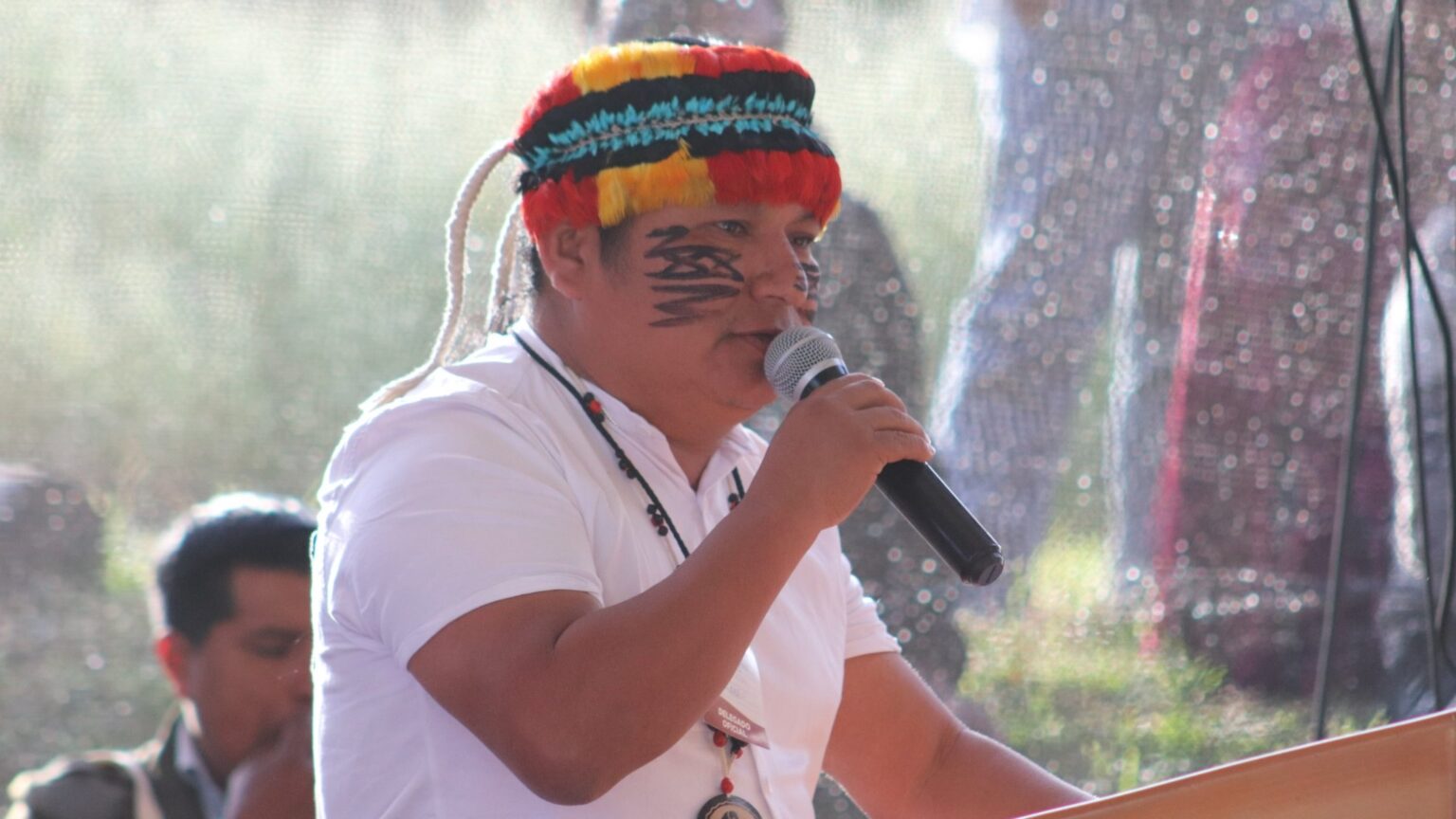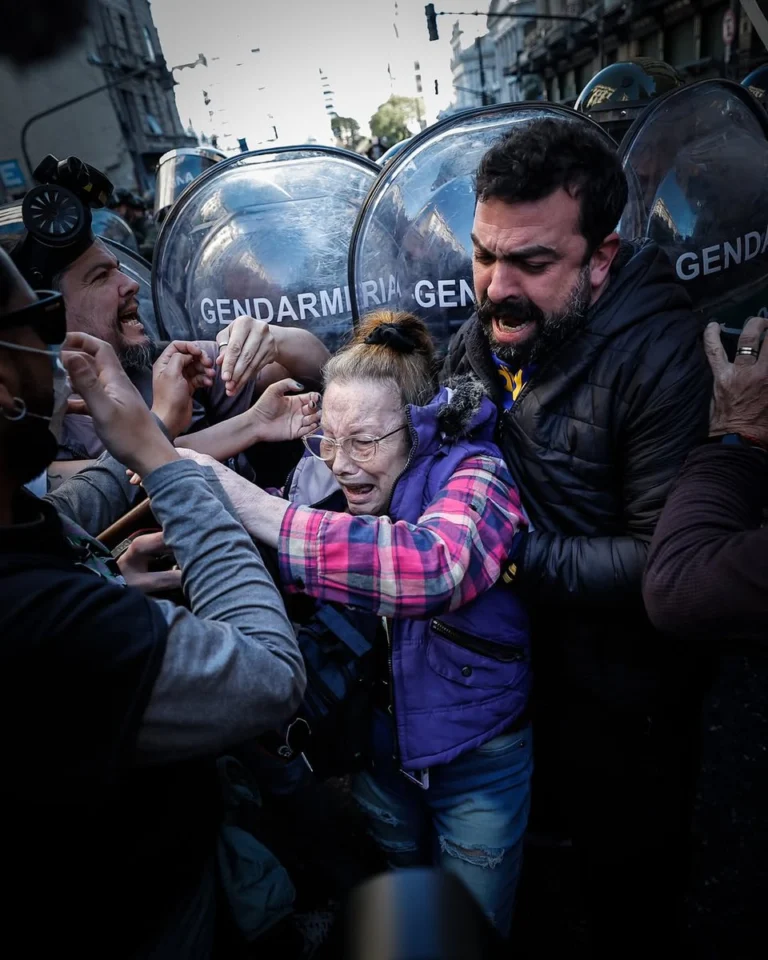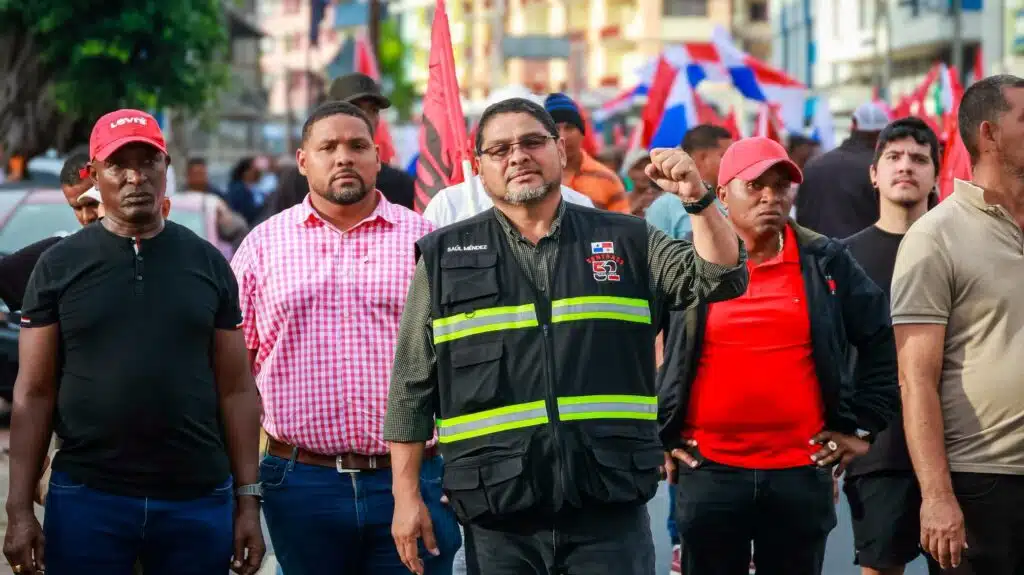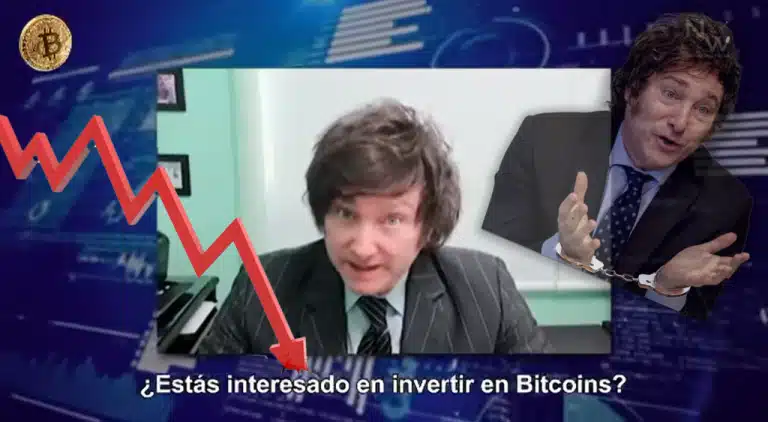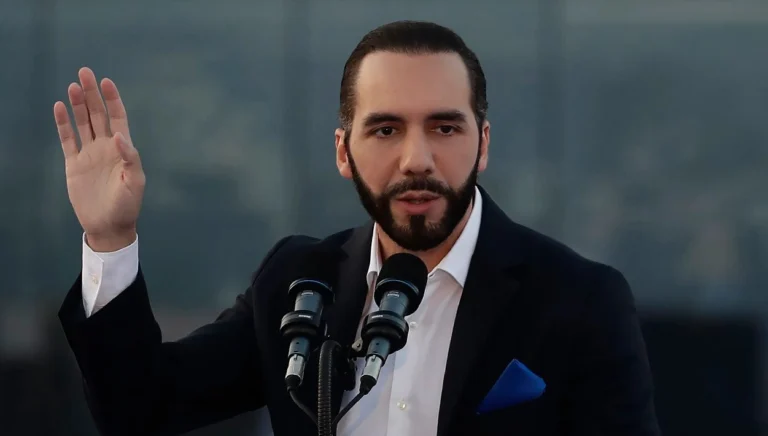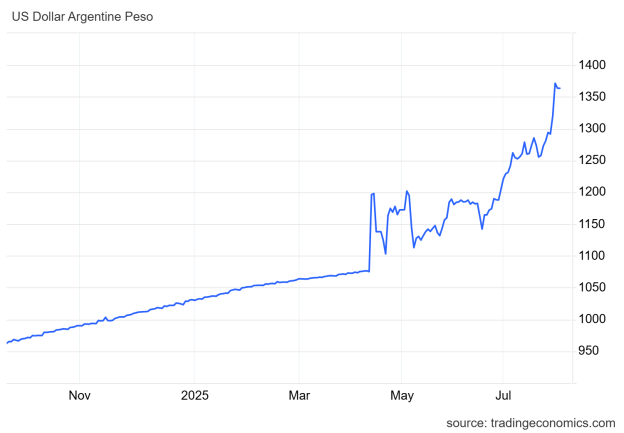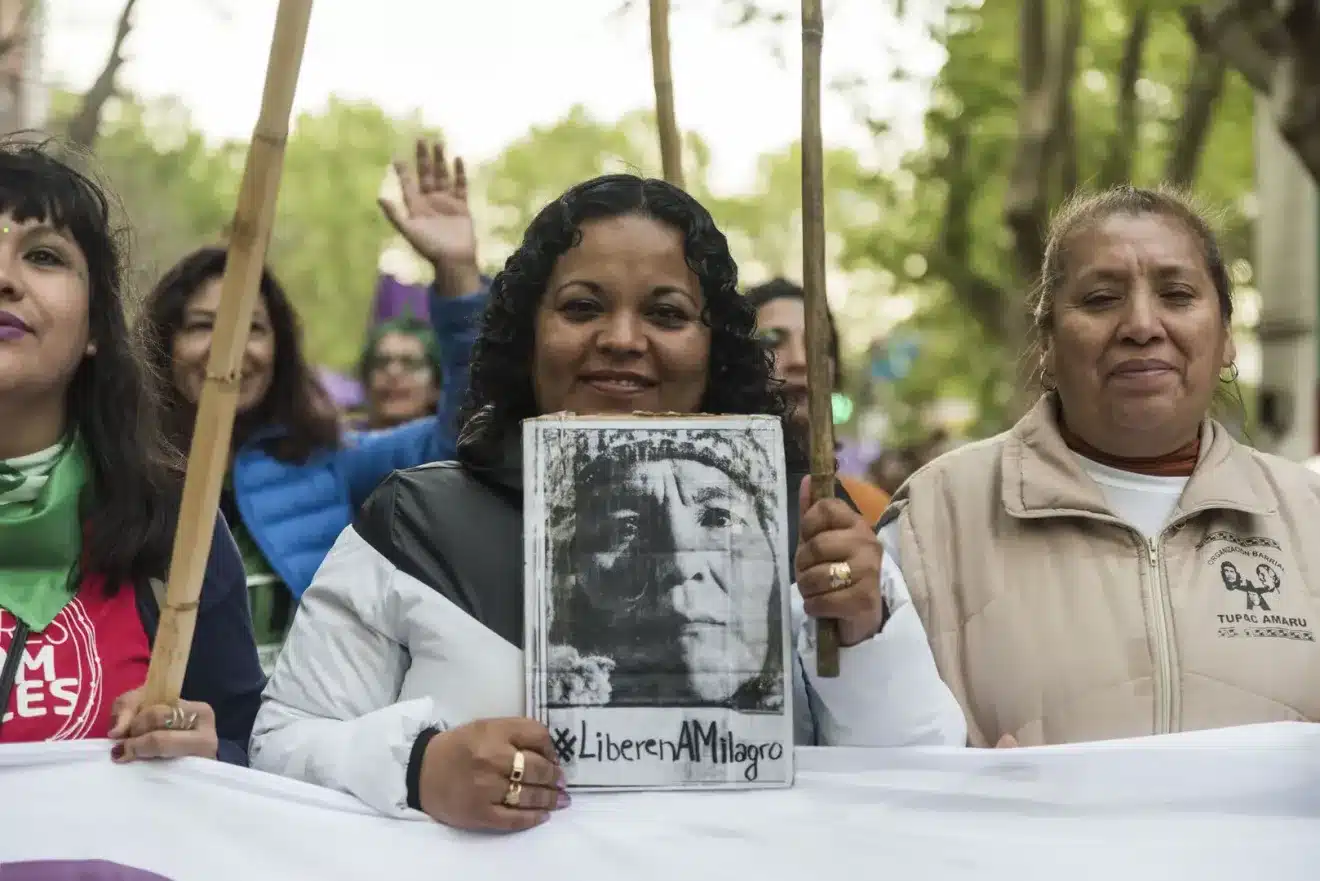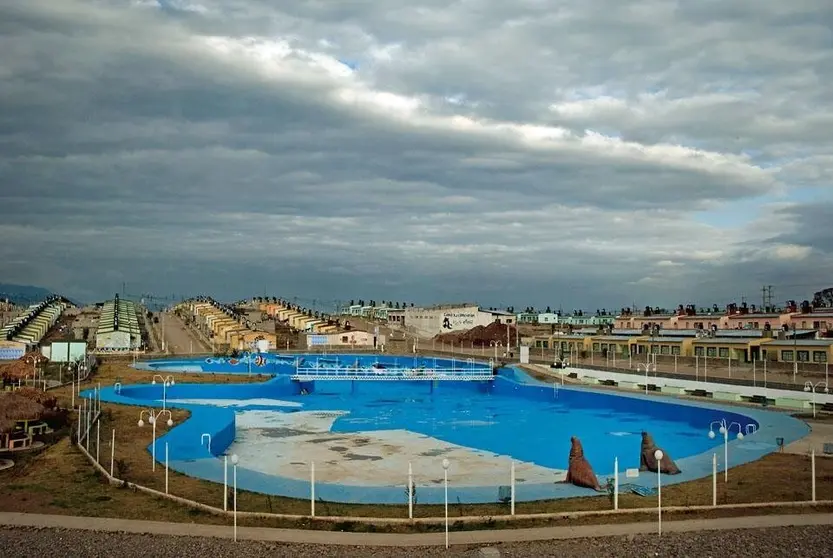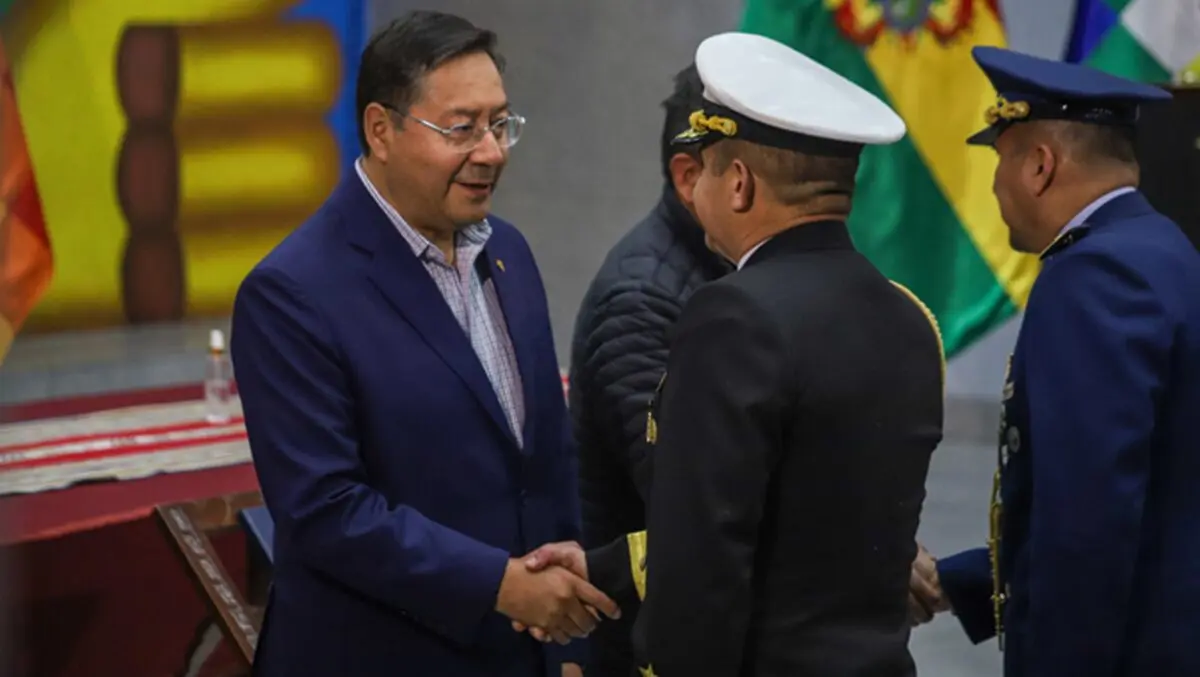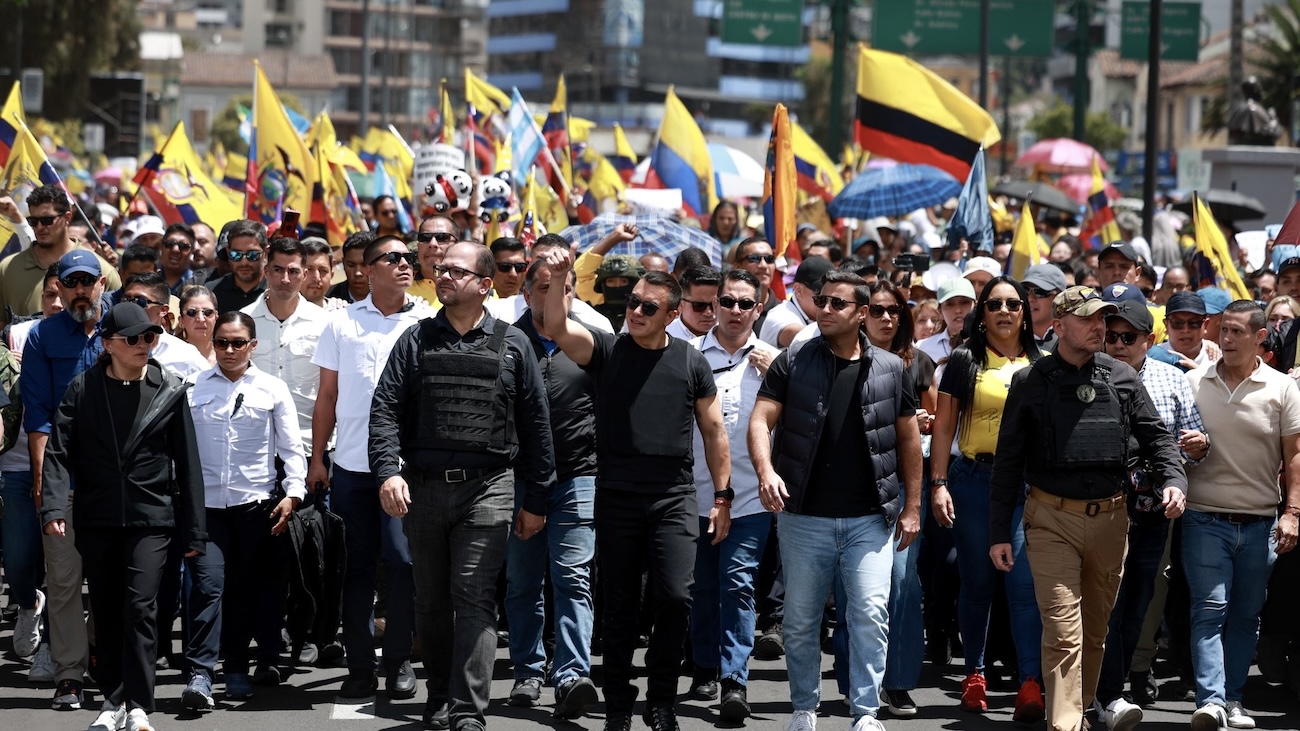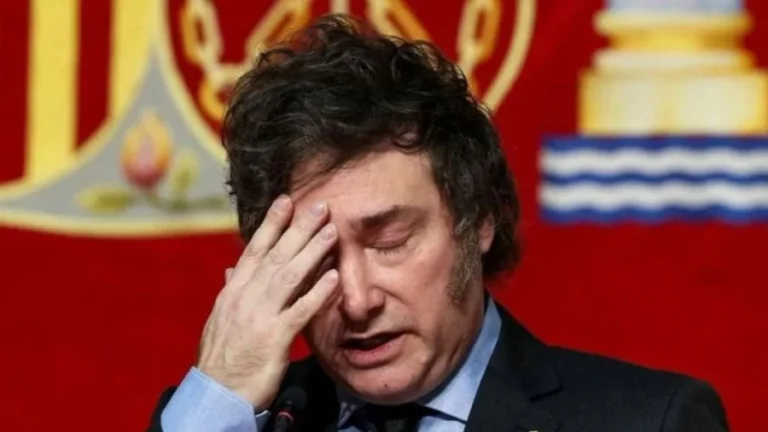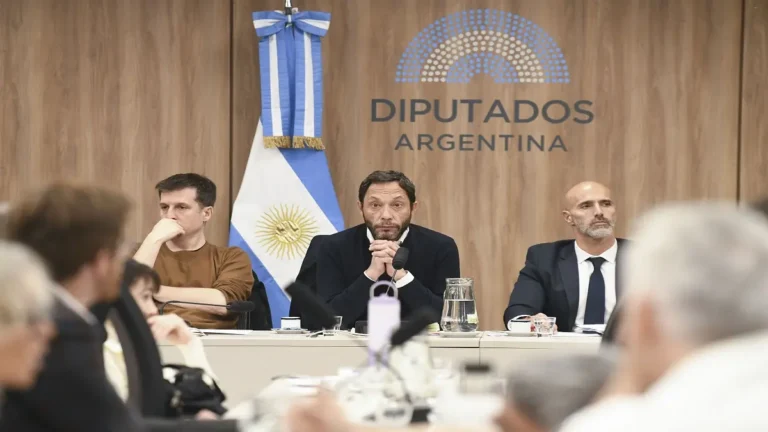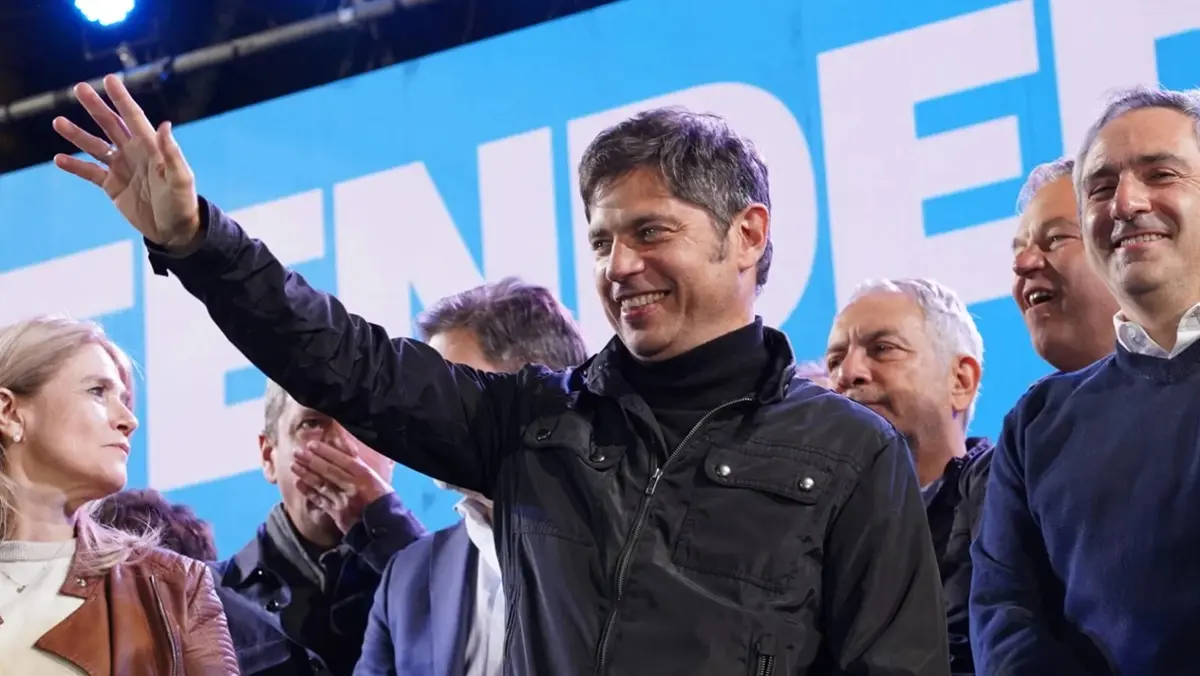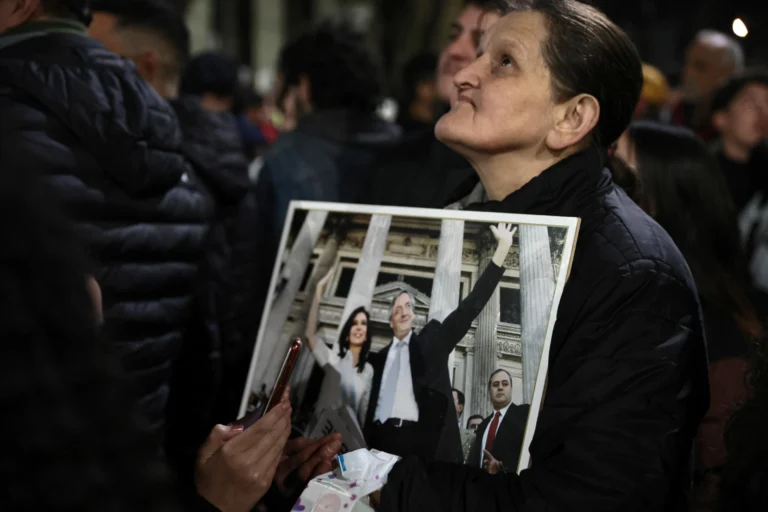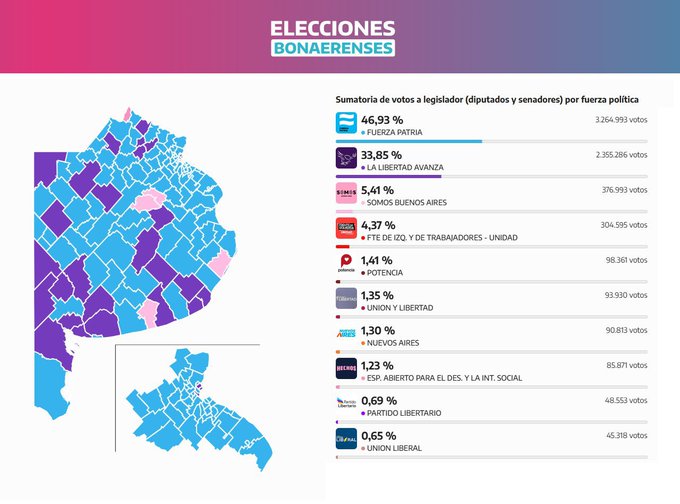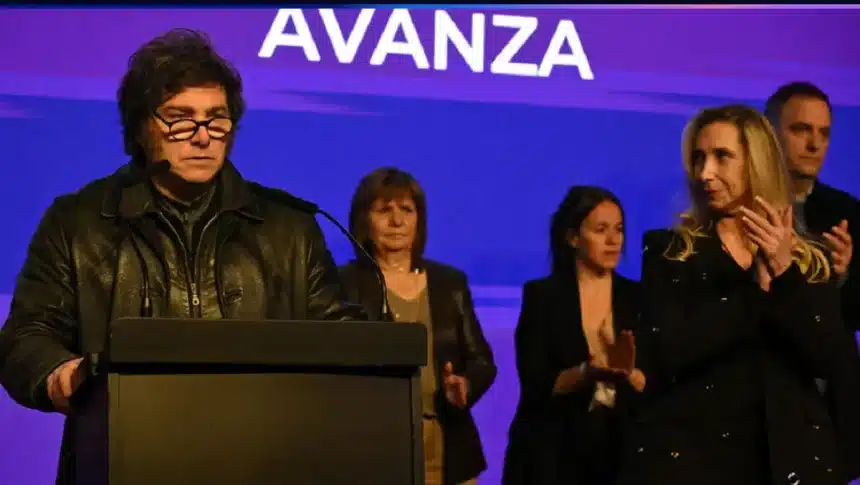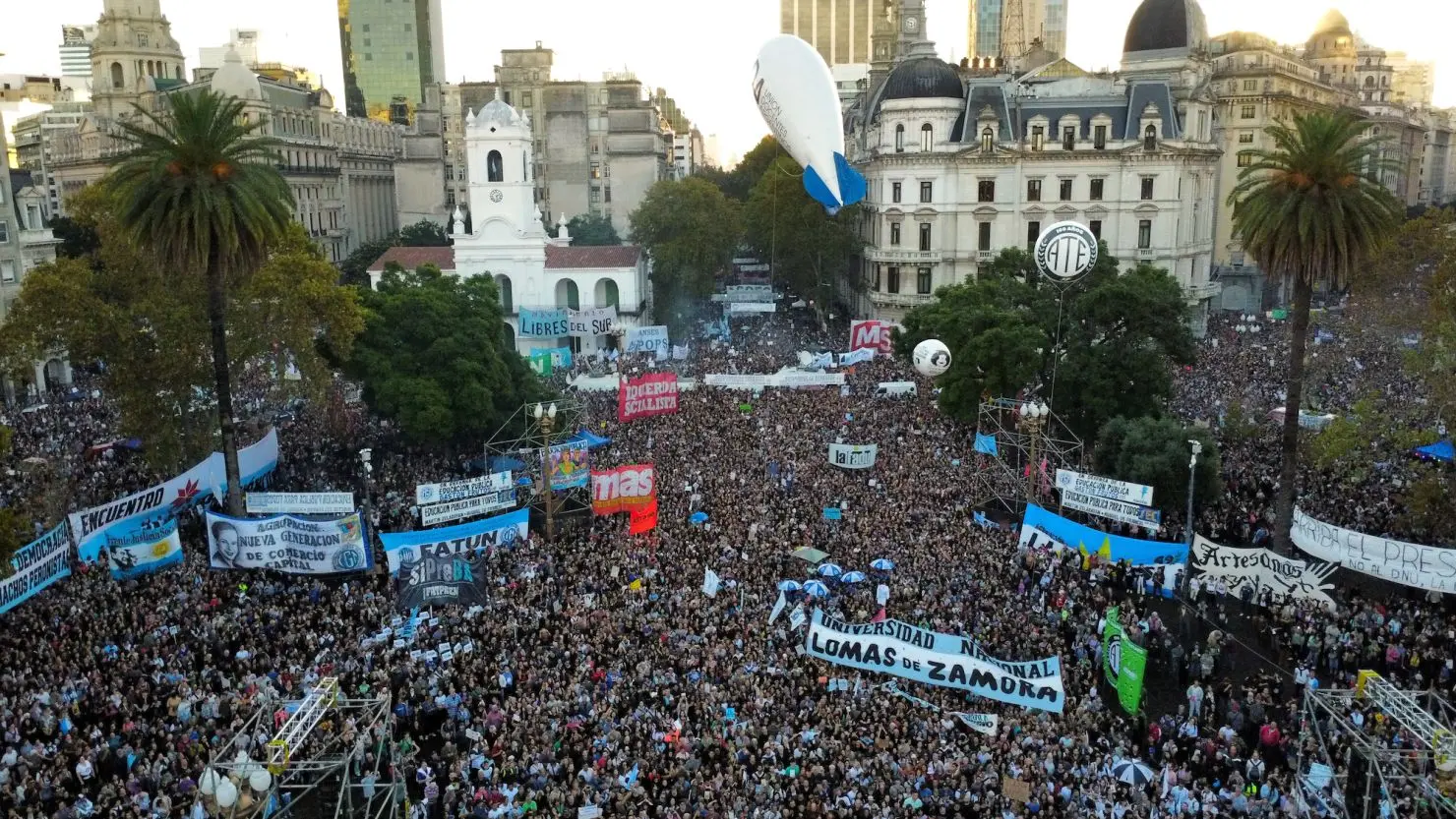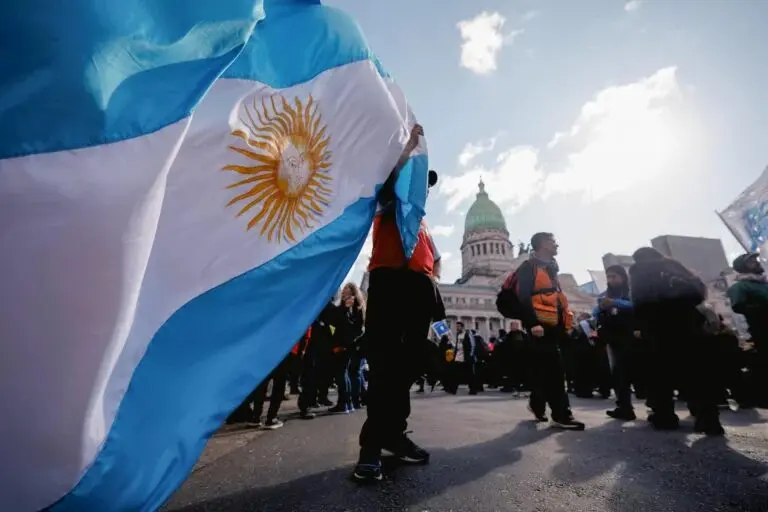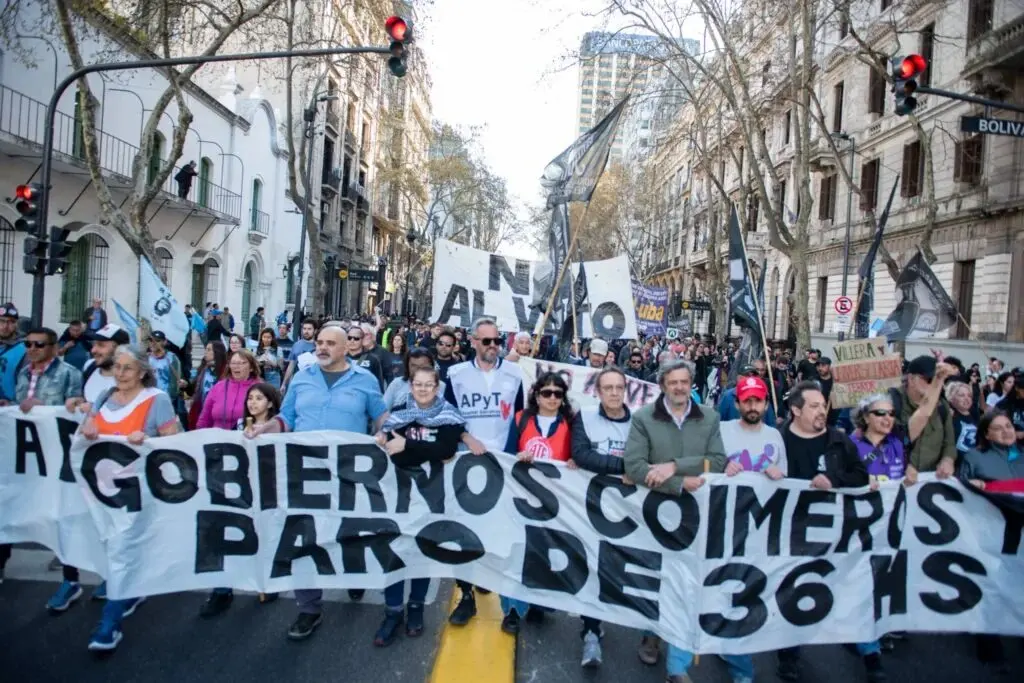
Donald Trump greets Jair Bolsonaro, March 2020 (via Wikimedia).
The Restoration of the Monroe Doctrine and Trump’s Imperialist Offensive in Latin America
By Tiago Nogara (Posted Sep 03, 2025)
1. The Revival of the Big Stick and the Monroe Doctrine
Since Donald Trump’s reelection as president of the United States, the world has watched in shock as US foreign policy has grown increasingly unilateral and aggressive, raising deep concerns about the future of international politics. These concerns stem not only from the record of his previous term but also from the growing resurgence of interventionist and unilateral policies that have gradually regained prominence in recent years—developments that have accelerated during the early days of Trump’s new administration.
Given the campaign promises made under the familiar slogan Make America Great Again (MAGA), such concerns were far from unfounded. And they were only amplified by the administration’s early actions. Within days of taking office, the United States had already announced its withdrawal from the Paris Agreement, the World Health Organization (WHO), and even the global tax deal of the Organization for Economic Cooperation and Development (OECD). In a threatening tone, Trump suggested turning Canada into the fifty-first US state, expressed interest in annexing Greenland, and made illegal and immoral proposals such as relocating Palestinians from Gaza to other areas in order to “cleanse” the region. He fully aligned with Israeli interests in the Middle East, giving carte blanche to the genocide of the Palestinian people in Gaza and even bombing Iranian territory in defense of his favored ally.
It is especially in Latin America, however, that Trump’s threats and directives have taken on an even more aggressive tone. During his previous administration, he had already pursued a policy of encirclement and annihilation against Venezuelan President Nicolás Maduro by recognizing the puppet, self-proclaimed government of Juan Guaidó and imposing a wide array of political and economic sanctions on Venezuela’s legitimate government. In the same vein, he reversed the thaw initiated by Obama in relations with Cuba; added Nicaragua to the list of countries subject to illegal and unilateral US sanctions; backed the coup d’état against Evo Morales in Bolivia; and encouraged the Colombian far-right’s attacks on the peace agreements with the Revolutionary Armed Forces of Colombia (FARC) and the National Liberation Army (ELN). He also pursued an open confrontation against China’s economic presence in Latin America, promoted the rise of neofascist movements in various countries, and intensified discriminatory immigration policies—most notably through the construction of a wall along the Mexican border.
Less than a month into the new administration, Trump’s Latin America policy already clearly signaled a path of radicalized hegemony and interventionism long embedded in US diplomacy. It is no coincidence that Secretary of State Marco Rubio’s first official trip was a tour of Central American and Caribbean countries. Not since Philander Chase Knox’s 1912 visit to Panama, during the construction of the Panama Canal, had Latin America been the destination of a US Secretary of State’s inaugural trip.[1]
From the outset, the president declared that the Panama Canal—managed directly by Panama since 1999—should be returned to Washington’s control in order to curb China’s growing regional influence. He loudly asserted that the United States “doesn’t need Latin America,” announced plans to rename the Gulf of Mexico as the “Gulf of America,” threatened heavy tariffs on Brazilian goods, and signed a decree classifying several Latin American cartels and criminal organizations as terrorist groups—thus opening the door for direct US military intervention in the region.[2]
Pledging to carry out the largest deportation campaign in history, the Trump administration issued several executive orders to that end. These included measures to end birthright citizenship for children born on US soil to undocumented immigrants, resume border wall construction, suspend asylum application processes, declare a state of emergency at the border, and deploy army troops to assist in operations against irregular immigration. In parallel, a mass deportation process was initiated, with military planes transporting hundreds of Latin American immigrants back to their countries of origin.
The way the US carried out these deportations sparked serious diplomatic incidents. In Brazil, deportees arrived in handcuffs—a practice deemed unacceptable and outrageous by Brazilian authorities, prompting official protests from the Lula government. In Colombia, the situation escalated even further. The Colombian government initially refused to allow US aircraft to land, demanding that its citizens be treated with dignity. In retaliation, Trump announced 25 percent tariffs on Colombian goods entering the US market—possibly increasing to 50 percent within a week—and declared that US visas would be revoked and travel banned for Colombian officials and their supporters. Colombian President Gustavo Petro responded by imposing reciprocal 25 percent tariffs on US goods, but soon backed down, agreeing to receive deportees unconditionally in order to prevent further escalation.
The diplomatic clash with Colombia illustrates key features of the strategy Trump’s new administration has adopted for Latin America. The US and Colombia have maintained a Free Trade Agreement (FTA) since 2012, and Trump’s proposed measures would directly violate it. Moreover, Colombia is the only South American country that still considers the US its top export destination, holds extra-NATO ally status, and hosts at least seven active US military bases. These early moves made clear that Trump intended to use tariffs and sanctions to coerce regional governments into aligning with US diplomatic interests—extending such tactics far beyond the usual targets of Cuba, Venezuela, and Nicaragua. Indeed, Trump’s initial threats were directed at the governments of Mexico, Brazil, and Colombia, suggesting that his offensive would not be limited by ideological boundaries—as also evidenced by the confrontations with Canada and Denmark.
In Central America and the Caribbean—historically the most targeted regions of the “Big Stick” policy—the outlines of a renewed political and economic reconfiguration became quickly apparent. Pressure on Panama, including threats of forcibly retaking the Canal Zone, led the country to announce its withdrawal from the Belt and Road Initiative and to transfer management of two canal ports from Hong Kong’s CK Hutchison to the US-based BlackRock. In Costa Rica, Marco Rubio endorsed the government’s criticism of Huawei’s 5G rollout. In an official statement, Costa Rican Foreign Minister Arnoldo André celebrated alignment with the US, stating: “Costa Rica was recognized, praised, and congratulated by Senator Rubio for addressing these issues in accordance with the interests of the new US administration,” echoing rhetoric aligned with the framework of a so-called “New Cold War.”[3] In Guatemala, backed by radical US sectors, President Bernardo Arévalo maintained his country’s subservient diplomatic stance, even continuing to recognize Taiwan diplomatically.
In this same context, the US has made clear efforts to discipline its regional ally Nayib Bukele, President of El Salvador, who—despite his right-wing orientation and personal ties to Trump—has sought to deepen El Salvador’s relations with China. In April, an opinion piece in the Wall Street Journal criticized the US government’s complacency toward Salvadoran-Chinese ties.[4] Meanwhile, the tightening of sanctions on Cuba and Nicaragua has reinforced the goal of consolidating a “sanitary cordon” around those nations—and, of course, around Venezuela.
Further south, pressure on Brazil intensified in the lead-up to President Xi Jinping’s visit, with multiple US officials voicing opposition to Brazil’s potential accession to the Belt and Road Initiative. Though Brazil has not formally joined the initiative, the Lula administration has emphasized synergies between its national programs—the Growth Acceleration Program (PAC), the New Industry Brazil plan, and the South American Integration Corridors—and the Belt and Road Initiative. Brazil–China relations have continued to deepen, with discussions underway on a bi-oceanic railway corridor between Brazil and Peru, backed by Chinese expertise and companies.
The US–Colombia diplomatic crisis in January occurred amid mounting strategic tensions between the two nations, particularly regarding China–Colombia relations. Traditionally a close US ally and the only “global partner” of NATO in the region, Colombia under Gustavo Petro has taken an alternative path in foreign policy—challenging US hegemony and drawing closer to China. In 2023, Petro established a Strategic Partnership with Beijing and spent over a year preparing Colombia’s accession to the Belt and Road Initiative—officially announced during the Fourth China–CELAC Forum.
Unsurprisingly, when Trump announced tariffs on products from multiple countries, Argentina received the lowest rates—an outcome publicly celebrated by Javier Milei. As the foremost representative of the Trump-inspired far right in Latin America, Milei has shown a clear willingness to sacrifice the interests of his people—and even of Argentina’s business class, as seen in his efforts to sabotage lucrative ties with China—in exchange for displays of unconditional loyalty to Washington. Under his leadership, Argentina withdrew from the Belt and Road Initiative, abandoned the BRICS+ accession process, and skipped the China–CELAC Forum held in Beijing.
Two other ideological allies of Trumpism in the region—Daniel Noboa’s government in Ecuador and Nayib Bukele’s in El Salvador—have shown less alignment with anti-China efforts, reflecting the growing tension between the worldview of the US right and the real interests of parts of the Latin American elite. Though they share an anti-progressive agenda and maintain close ties with conservative US sectors, these leaders also represent fractions of national economic elites whose fortunes are increasingly tied to strong relations with China. Even so, it is undeniable that the United States wields far more control over Noboa and Bukele than over their main challengers—the Revolución Ciudadana in Ecuador and the Farabundo Martí National Liberation Front (FMLN) in El Salvador. For that reason, US diplomatic and intelligence services did not hesitate to back the irregular and questionable measures that defined the elections which returned Noboa to the presidency, despite the opposition’s strong allegations of fraud.
Finally, the heavy and ongoing US sanctions against Cuba, Nicaragua, and Venezuela were further intensified at the start of Trump’s new term, with the aim of fracturing their governments and empowering reactionary political and social forces committed to the success of regime-change tactics.
2. The Reasons behind Latin America’s Centrality
This reconfiguration of US foreign policy is no coincidence. Contrary to Trump’s claims that the United States “doesn’t need Latin America,” the region is, as the Argentine political scientist Atilio Borón consistently argues, the most important in the world for the United States.[5] It was not by chance that the Monroe Doctrine was articulated as early as 1823. Long before Woodrow Wilson outlined the pillars of a new global multilateralism in his Fourteen Points, the US was already seeking to establish a regionally led multilateralism through the Pan-American Conferences, which began in 1889. The Organization of American States (OAS) and the Inter-American Treaty of Reciprocal Assistance (TIAR) later consolidated a decision-making environment in the Americas operating outside of global multilateralism and under the close watch of the United States. Even before McCarthyism was exported or the political conditionalities of the Marshall Plan helped suppress communist parties in Europe, Latin American oligarchies were consistently encouraged by the United States to persecute key leaders of local workers’ and peasants’ movements.
Those who interpret such actions as mere expressions of American “disregard” for what they consider their “backyard” are mistaken. In reality, Trump’s diplomatic maneuvers reflect a determined effort to reorganize the balance of political and economic forces in the region. This objective is directly tied to three interrelated issues: global competition with China, containment of left-wing governments in Latin America, and control over strategic natural resources.
Latin America holds vast reserves of critical minerals essential to the global energy transition and the development of sustainable technologies, including lithium, copper, and nickel. Specifically regarding lithium, the region accounts for around 60 percent of global reserves—most of them concentrated in the Lithium Triangle of Chile, Argentina, and Bolivia.[6] Latin America also produces roughly 40 percent of the world’s copper, thanks to large reserves and mining capacity in countries like Chile, Peru, and Mexico.[7] It also hosts significant reserves of silver and tin, nearly one-third of the planet’s freshwater, and immense biodiversity. In addition, the region holds about one-fifth of the world’s oil and gas reserves, including the world’s largest proven oil reserve, located in Venezuela.[8] Crucially, Latin America is the world’s largest net food exporter and controls almost a third of the planet’s arable land—most of it in Brazil.[9]
The United States’ insatiable appetite for control over these resources has never been a secret. History is filled with examples of how Washington deployed a wide array of tools to eliminate Latin American political and social forces that opposed this agenda. One need not revisit the early days of the Monroe Doctrine, the violent seizure of nearly half of Mexico’s territory, the incursions of filibusters into Central America and the Caribbean, or the CIA-backed coups and dirty wars of the Cold War. It would be enough to observe the more recent cycle of the rise and destabilization of left-wing governments in the early twenty-first century.
Indeed, the marks of Yankee imperialism are deeply etched in the brutal campaign to topple the progressive governments of Latin America’s so-called pink tide—those that buried the Free Trade Area of the Americas (FTAA) proposal at the 2005 Mar del Plata Summit, challenged the Washington Consensus, and sought to build regional multilateralism outside the frameworks of the OAS and TIAR. When needed, the empire resorted to its usual brand of violence, as seen in the repeated unilateral, illegal, and criminal political and economic sanctions against Cuba, Venezuela, and more recently, Nicaragua. This same logic underpinned explicit US support for successive coup attempts in Venezuela and Bolivia, including the kidnapping of Hugo Chávez in 2002, the secessionist push in Bolivia’s Media Luna region in 2008, the violent Venezuelan guarimbas, and the bloody 2019 coup against Evo Morales.[10]
Yet Washington’s reactionary offensive has not relied solely on open violence. It has also refined its tactics of “soft coups,” particularly through lawfare.[11] By fueling Operation Car Wash (Lava Jato), the US managed to dismantle Brazilian construction firms that competed in Latin America, severely undermine Petrobras’s operations—paving the way for foreign companies to access Brazil’s pre-salt oil reserves—and in the process, destabilize and oust Dilma Rousseff’s government and imprison Lula.[12] Even earlier, lawfare had already struck the Workers’ Party (PT), with the “Mensalão” scandal temporarily removing key figures like José Dirceu and José Genoíno from political life. Similar tactics led to the removal of Manuel Zelaya in Honduras and Fernando Lugo in Paraguay; the resignation of Vice President Raúl Sendic in Uruguay; the convictions of Cristina Kirchner in Argentina, and Rafael Correa and Jorge Glas in Ecuador; and the ousting and imprisonment of Pedro Castillo in Peru. It is no surprise, then, that Mexico’s Fourth Transformation governments have consistently emphasized the urgent need to democratize their country’s oligarchic judiciary—a system that mirrors that of many others in the region.
While these tools succeeded in destabilizing and even overthrowing numerous governments, they failed to eliminate the social contradictions that continue to drive Latin American peoples to fight for better living conditions. Despite the immense challenges—hundreds of debilitating sanctions among them—the governments of Cuba, Venezuela, and Nicaragua remain standing. After the 2019 coup, Bolivia’s Movement for Socialism (MAS) returned to power with Luis Arce. Even in Brazil, where the far right once appeared to dominate the political landscape, Lula was re-elected—albeit at the head of a far more conservative coalition than in his previous terms. And not even Colombia—once a cornerstone of US influence in the region—proved immune to the shift, as the election of former guerrilla Gustavo Petro marked a dramatic turn in national politics. The high approval ratings of Andrés Manuel López Obrador and his successor, Claudia Sheinbaum, in Mexico, also speak volumes.
One might argue that the more radical governments have been weakened and the moderates pose little threat to US interests. But this is precisely where many analysts go wrong. In the current historical moment, even moderate solutions seem insufficient to sustain US hegemony in the region or globally. And this is not merely due to the back-and-forth of confrontations with the Latin American left—it is above all due to the structural factor of China’s growing cooperation with Latin America and the Caribbean.
Since China joined the World Trade Organization (WTO) just over two decades ago, its economic presence in Latin America has steadily grown. Today, China is the main trading partner of nearly all South American countries. Chinese direct investment has also increased, financing infrastructure projects with significant regional impact—such as the newly inaugurated port of Chancay in Peru. More than twenty countries in the region have joined the Belt and Road Initiative (BRI), and fewer and fewer maintain diplomatic ties with the Taiwanese province, choosing instead to recognize the one legitimate government of China, headquartered in Beijing.[13]
Furthermore, China’s guiding principle of non-interference in the domestic affairs of other countries has been well received by leaders across the ideological spectrum. This combination of expanding economic synergy and respect for sovereignty has created a major dilemma for US diplomacy. In the Cold War era, counterinsurgency tactics in partnership with Latin American oligarchies were used to contain communism and Soviet influence. But those same tactics are now inadequate to contain China. Today, it is not only left-wing or nationalist-popular governments that seek closer ties with Beijing. Even Peru’s conservative government under Dina Boluarte has shown no signs of jeopardizing its relationship with China. And even puppet far-right governments, such as those of Jair Bolsonaro and Javier Milei, have faced enormous difficulties in executing anti-China policies, because large segments of their national elites rely on strong economic relations with Beijing.
This explains the recent surge in public statements by high-level US officials criticizing growing China–Latin America cooperation. In July 2024, during the Aspen Security Forum, US Southern Command Chief Laura Richardson criticized Latin American engagement with China, saying: “They don’t see what the United States is bringing to the countries. All they see are the Chinese cranes, the development, and the Belt and Road Initiative projects.”[14] She suggested launching a new “Marshall Plan” for the region as a counterweight to Chinese initiatives. Speaking about Chinese infrastructure investments, Richardson claimed these projects were allegedly designed for “dual use,” implying potential military as well as civilian applications. Later, at the opening of the South American Defense Conference (SOUTHDEC) in Santiago, Chile, in August, she declared that a contradiction existed between what she called “Team Democracy” and the interests of “authoritarian and communist governments trying to take as much as they can here in the Western Hemisphere—operating with no regard for national or international law.”[15]
Subsequently, US Trade Representative Katherine Tai warned Brazil to be cautious about joining the Belt and Road Initiative. Echoing Laura Richardson’s tone, she stated, “Sovereignty is fundamental, and that is a decision for the Brazilian government. But I would encourage my friends in Brazil to view the proposal through the lens of objectivity, through the lens of risk management.”[16] Finally, in an April 10 interview with Fox News, US Secretary of Defense Pete Hegseth accused the Obama administration of neglecting China’s growing influence in Latin America and declared that, under the Trump administration, the US would reclaim its “backyard.” He added that efforts were already underway to “take back the Panama Canal from communist Chinese influence.”[17] In sharp contrast, Chinese Foreign Minister Wang Yi responded on April 14 that Latin American countries are “no one’s backyard” and that “the people of Latin America want to build their own home.”[18]
It is within this broader context that the now-familiar anti-China narratives have emerged and proliferated. Updating Cold War–era anticommunist metaphors, these discourses recycle baseless accusations of “totalitarianism,” “Chinese imperialism,” and “debt traps.”[19] Most reflect the worldview of the hardline anti-China camp—those who openly oppose any manifestation of the People’s Republic of China’s success and who hold considerable sway over influential circles of power in the North Atlantic world, as illustrated by recent statements from top officials in Donald Trump’s administration.
Thus, when Trump accuses Brazil of wishing “harm” upon the United States, he does so not because Lula’s government is overtly anti-imperialist, but because it refuses to participate in the dirty game of containing China and suffocating defiant neighboring governments. Alongside his early pressure on the Petro and Sheinbaum administrations over migration, Trump has also paved the way for interventionist measures by classifying various Latin American cartels as terrorist groups. It is no coincidence that these developments coincide with calls from former Colombian presidents Álvaro Uribe and Iván Duque for international military intervention in Venezuela. Meanwhile, the conservative media accuses Petro of leniency toward the ELN and insists on portraying the insurgent group as a mere criminal faction and political tool of Nicolás Maduro’s government.
All of these moves are part of a broader strategy: to weaken China’s presence in Latin America and to fully restore US hemispheric hegemony—a goal that ultimately depends on the ability to defeat progressive Latin American governments and social movements.
3. No Room for Moderation: The Assault on Brazil as a Test Run for What Comes Next
It is this broader context that has led the United States to intensify its unilateralism and the violent imposition of its will in the region. Moderate and compromise-based solutions are no longer sufficient to meet the empire’s interests. More than ever, what the United States now seeks are puppet governments willing to sacrifice not only the interests of their own peoples but also those of significant portions of their national elites. After all, the decline of US hegemony on the global stage is becoming increasingly evident, as demonstrated by its recurring defeats in the technological race against China—most recently exemplified by the staggering $1 trillion loss suffered by US Big Tech following the release of DeepSeek, a Chinese artificial intelligence model.[20]
It is no coincidence that Elon Musk—who held quasi-ministerial status during the beginning of Trump’s administration—is an open supporter of far-right activity in Latin America. He publicly defended the 2019 coup in Bolivia, maintains close ties with Nayib Bukele and Javier Milei, and recently clashed directly with the Lula government in Brazil.[21] Musk has a vested interest in competing with China in several technological sectors, which explains his increasing involvement across the Lithium Triangle and his efforts to politically destabilize Brazil, a country poised to become a hub for Chinese electric vehicle production. The Trump phenomenon and the proposed overhaul of relations with Latin America are not the result of megalomania, but rather the materialization of the interests of American billionaires intent on defending their astronomical profits.
As has historically been the case with US foreign policy, maintaining unrestricted control over Latin America remains a prerequisite for boosting the country’s global projection. The US would hardly dare to engage in large-scale conflict in the Middle East or East Asia without first securing at least partial control over Venezuela’s vast oil reserves. Nor can it hope to export its anti-China directives to extra-hemispheric allies without first succeeding in Latin America.
Thus, the effort to reshape the region’s political landscape is directly tied to the outcome of this year’s and next year’s elections, with decisive chapters in countries like Bolivia, Chile, Honduras, Colombia, and Brazil—where the US will focus on defeating a broad range of progressive governments. Bolivia has long been a target of US interventions, most notably illustrated by Elon Musk’s public remarks on the 2019 coup against Evo Morales. Today, President Luis Arce faces difficulties stemming from internal divisions within the MAS between his own supporters and those of Evo. In this context, the right’s hopes of returning to power through elections—after more than two decades—are visibly reinforced by Washington’s strategic interests.
In recent years, Honduras has taken a markedly different path from its past, establishing diplomatic ties with China in 2023 under President Xiomara Castro. She now seeks to ensure that her successor upholds a progressive political orientation and deepens the country’s relationship with China. In contrast, the likely candidate of the Liberal Party, Salvador Nasralla, has publicly opposed a potential free trade agreement with China and criticized the diplomatic break with Taiwan.
In Chile, the right-wing opposition to President Gabriel Boric includes several prominent conservative figures, notably Johannes Kaiser, who espouses a libertarian, far-right discourse reminiscent of Javier Milei. Meanwhile, in Colombia, the United States has made clear efforts to redirect the country fully toward its strategic and commercial interests. Colombia serves not only as a key trading partner, but also as a central player in Washington’s attempts to isolate Venezuela and curb China’s influence in South America.
Brazil will likely be the stage for the region’s most important electoral battle. President Lula will seek re-election against a yet-to-be-defined candidate who will nonetheless have the backing of Jair Bolsonaro, who is currently ineligible to run. It is worth recalling that under Bolsonaro’s last administration, Brazil officially withdrew from the Community of Latin American and Caribbean States (CELAC), actively dismantled the Union of South American Nations (UNASUR), and undermined other regional integration bodies that had gained prominence in the previous decade. Bolsonaro’s supporters are unequivocally aligned with Trumpism, frequently seen waving US and Israeli flags at demonstrations in Brazil.
As a dress rehearsal for US-backed destabilization of the Lula administration, President Trump has dramatically escalated the unilateral and aggressive posture of US foreign policy, orchestrating a series of joint attacks on Brazil and its efforts to build a new multipolar world order. In the wake of the successful BRICS Summit in Rio de Janeiro—which delivered a powerful declaration defending multilateralism and South–South cooperation—Trump threatened a 10 percent tariff on products from countries aligning with what he called the “anti-American policies of BRICS.”[22] He then launched a new phase of his global trade war, this time explicitly targeting Brazil under the pretext of alleged commercial irregularities and, more pointedly, to interfere in Brazil’s domestic political process in favor of his ideological ally, Jair Bolsonaro. Meanwhile, NATO Secretary-General Mark Rutte warned that Brazil, India, and China could face secondary sanctions due to their ongoing diplomatic and economic ties with Russia.
Contrary to dire forecasts from Western think tanks and media outlets, the BRICS Summit in Rio defied predictions of fragmentation and stagnation. During its seventeenth high-level meeting, BRICS leaders approved over 120 joint commitments spanning global governance, finance, health, artificial intelligence, climate change, and sustainable development. The Rio Declaration raised urgent concerns about global military spending at the expense of development in the Global South. In contrast with prevailing militaristic rhetoric, the bloc reaffirmed its commitment to multilateralism, poverty eradication, and climate action. Among the adopted initiatives were the BRICS Leaders’ Framework Declaration on Climate Finance, the Declaration on Global Governance of AI, and the BRICS Partnership for the Elimination of Socially Determined Diseases. Far from being irrelevant, BRICS emerged as a principal vanguard for a peaceful, multipolar world order.
Additionally, during bilateral meetings held alongside the summit, Brazil and China made progress in discussions and technical studies for the construction of a bi-oceanic railway in South America. The project would cross Brazilian and Peruvian territory, providing a direct land connection to the port of Chancay on the Pacific coast, reducing dependence on the Panama Canal and helping to shorten and enhance trade between Latin America and Asia.
In light of the dire situation of his Brazilian ally—former President Jair Bolsonaro, ruled ineligible for the 2026 election and facing growing legal jeopardy, including involvement in coup plots and even assassination schemes against President Lula—Trump decided to openly intervene in Brazil’s internal affairs. Bolsonaro’s son, Federal Deputy Eduardo Bolsonaro, simply abandoned his seat in Brasília and moved to the United States, where he is actively working with Trump’s team to reverse his father’s political ban and reignite the far right in Brazil. The trade offensive thus goes beyond economics—it is a calculated political assault designed to fracture the coalition that defeated the reactionary and surrenderist forces in 2022.
In President Trump’s and the Bolsonaristas’ view, hitting Brazilian exports to the US—critical to the profits of many industrial sectors—would sever the alliance between Lula and parts of the national economic elite. They believed this would forge a united front of elites advocating for Bolsonaro’s release and eligibility to run for office, in exchange for restored Brazil–US trade relations.
But this logic completely misfired. Instead, the subservience of Brazilian extremists—who went to Washington seeking sanctions on their own country—aroused a robust wave of national pride and pushback. Brazilian social movements and popular organizations mobilized on Avenida Paulista, in São Paulo, occupying more than three blocks to defend national sovereignty and demand progress on social justice issues, including Lula’s recent proposal to increase taxes on multimillionaires. Simultaneously, broad sectors of the conservative opposition lowered their weapons and aligned themselves with the president to form a national unity front against imperialist aggression, condemning the cowardly and submissive stance of the far right.
In response, the government invoked the Economic Reciprocity Law, announcing the imposition of symmetrical trade sanctions to protect national industry. This move was endorsed by Congress, business federations, and even influential private media. Estadão, a traditional conservative outlet, published an editorial condemning Bolsonarista submission to foreign powers, and Jornal Nacional—linked to the right-leaning Rede Globo, Brazil’s main private media oligopoly—gave Lula a prime-time platform to speak directly to television viewers.[23] In Parliament, far-right lawmakers found themselves increasingly marginalized, while conservative sectors shifted in support of the government. Finally, Lula issued a public statement to the country, invoking the unity of broad forces in defense of national sovereignty, economic development, and social justice, while denouncing the subservience of those he called traitors to the nation.
Lula’s leadership redrew the political center, uniting social movements, democratic leftists, middle-class factions, and segments of the industrial bourgeoisie. Recent polling shows a strong surge in government approval and steep declines for Bolsonaro’s supporters. Lula has reemerged as the beacon of a national project centered on sovereignty and social justice.
What simply isn’t understood by Trump and his strategists is how global power dynamics have shifted. While key Brazilian industries still rely on the US market, China has been Brazil’s largest trading partner since 2009. Brazil’s pragmatic, universalist foreign policy enables strategic diversification through agreements across Asia, Africa, and Latin America. The Ministry of Foreign Affairs has already initiated efforts to redirect exports.
Even Brazil’s most conservative elites remain unaligned with Washington’s anti-China campaign and firmly reject interference in national affairs. Under these circumstances, Lula’s reaffirmed leadership has gained renewed legitimacy under the banner of national sovereignty and social justice.
By brandishing his threatening “big stick” against Brazil, President Trump has inadvertently strengthened the very unity he sought to fracture. His approach mirrors the flaws of US global policy: unable to prevent China’s rise, the consolidation of BRICS, or the popular resurgence in Latin America. In attempting to push Brazil—and the world—backward, he only accelerates history in the opposite direction. With Lula at the helm, Brazil’s democratic-popular alliance, the revitalization of BRICS, and the resurgence of South–South solidarity ensure that Brazil will not bow to blackmail—and that the wheel of history will keep turning forward.
4. There Will Be No Victory without Struggle
In light of all the aforementioned developments, the peoples of Latin America must be fully aware of the central role that their lands and destinies play in the current global realignment of power. It is undeniable that two elements—the growing diplomatic pressure on Latin American governments and efforts to reshape the balance of forces by supporting reactionary elements—form the core of the Trump administration’s strategy for the region. The primary goals are to weaken Latin America’s ties with China and to contain the renewed rise of progressive governments.
Recent events, however, have revealed key vulnerabilities in this strategy. The unilateralism, tariff threats, and blackmail deployed by the United States have generated mistrust and discord even among some of its closest partners. Trump allies such as Daniel Noboa and Nayib Bukele have shown hesitation in fully endorsing the anti-China offensive, while other conservative governments—like that of Dina Boluarte in Peru—appear unwilling to embrace the rhetoric of a “New Cold War.” The US offensive has even led some progressive governments to radicalize their positions in response to Washington’s hegemonism, as illustrated by President Petro’s tone when announcing Colombia’s accession to the Belt and Road Initiative. In Brazil’s case, it is undeniable that attacks and threats against the Lula government have, perhaps unintentionally, strengthened it—while solidifying the public image of the Bolsonarist far right as national traitors, for going so far as to request sanctions against their own country at the White House.
Even so, these developments do not mark the final outcome of the conflict. As the case of Panama clearly shows, US pressure has also yielded results favorable to its interests. Although Brazil continues to deepen its relationship with China, it is evident that American pressure played a significant role in preventing the country from formally announcing its accession to the Belt and Road Initiative—a gesture that would have greatly enhanced the symbolic weight of bilateral rapprochement. The United States’ aggressive stance in favor of regime change and the destabilization of progressive governments goes hand in hand with its unwavering support for far-right reactionary forces. US tacit backing of the fraudulent re-election of Noboa in Ecuador, preparations for a coup d’état in Colombia, and the ongoing attempt to destabilize the Lula government are clear indicators that a period of heightened political and electoral challenges for progressive forces lies ahead in the region.[24]
That said, it is equally clear that the world is rapidly undergoing structural transformations that are expanding the political and economic room for maneuver available to developing countries. In this context, the relationship between Latin America and China has become increasingly indispensable, as evidenced by the outcomes of the Fourth China–CELAC Forum, which emphasized a shared vision of development, multilateralism, and South–South cooperation. Strengthening these ties is not merely a matter of diplomatic protocol—it is a vital necessity for securing the region’s autonomy and future.
However, it must also be acknowledged that the definitive defeat of imperialism in Latin America will not come solely through the international actions of national governments—crucial as these may be. It will also depend on the ability of progressive and popular forces to resist, within each country, the historical alliance between surrenderist oligarchic elites and Washington’s hawks, who continue working to keep the ghost of the Monroe Doctrine alive.
(Notes at link.)
https://mronline.org/2025/09/03/the-res ... n-america/
*****
Of Peace, of War, and Other Demons
The principles born in the Global South, from spaces of unity and cooperation such as the Bandung Conference or the Tricontinental Conference of Havana call on us to strongly defend a peace anchored on solid foundations of national sovereignty, sustainable development, and social justice.
27 August 2025

Marisol Escobar (Venezuela-US), The Generals, 1962.
Greetings from the Nuestra América Office of Tricontinental Institute for Social Research,
In a letter addressed to various leaders and authorities around the world on June 23, 2025, Venezuelan President Nicolás Maduro called for a “Summit for Peace and against War” in response to the military offensive by the United States and Israel in West Asia. The South American leader specifically urged organizations of the Global South, such as the Non-Aligned Movement, the League of Arab States, the Organization of Islamic Cooperation, the Gulf Cooperation Council, the African Union, BRICS, and CELAC, with the crucial support of China and Russia, to take the lead in promoting, under the framework of international law, an immediate and complete ceasefire throughout the region.
Warning about the danger of a nuclear escalation, Maduro also urged the creation of a “Nuclear-Weapon-Free Zone in West Asia,” which the United Nations Security Council would have to guarantee by ensuring the denuclearization of Israel. The request is preceded by the resolution first presented in 1974 by Iran with the support of Egypt for the “establishment of a nuclear-weapon-free zone in the Middle East region,” which was approved and has since been a recurring topic of work in the multilateral body.
As a show of support for this initiative, nearly 600 delegates from 80 countries met in Caracas on July 25, showing that peace diplomacy must be on the agenda of the peoples of the Global South and not only of the United Nations, whose total budget is a thousand times less than global military spending. The Political Coordination of ALBA Movements was present in Caracas and identified the urgency of acknowledging that the underlying dispute is “a conflict between the ideas of liberation and the ideas of domination.” In May 2026, on the centenary of the birth of Comandante Fidel Castro, the IV Continental Assembly of ALBA Movements will be held with the goal of consolidating a common agenda to fight against the challenges of imperialism and its warmongering agenda, starting from a “climate of hope and revolutionary mystique.”
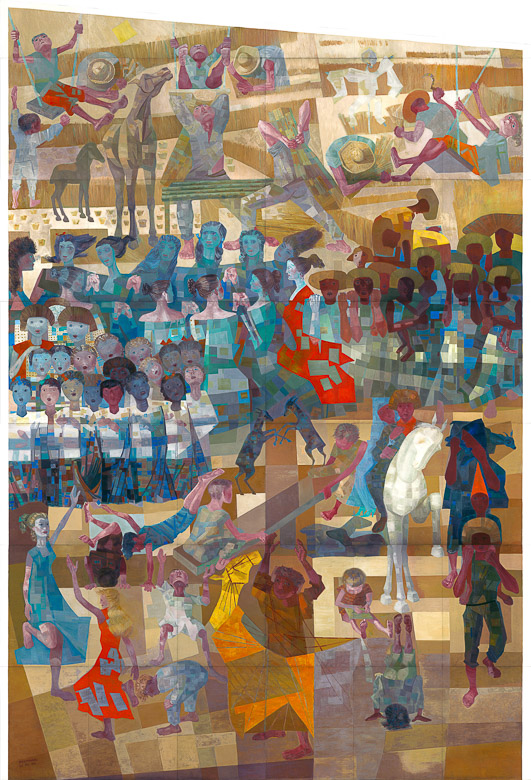
Candido Portinari (Brazil), Paz (Peace), 1952-1956. Oil panel/plywood, 1400 x 953 cm.
Peace
The clamor for peace in Our America was born in response to the fiercest episode of violence ever recorded in history. In Open Veins of Latin America, Eduardo Galeano, citing the Brazilian sociologist Darcy Ribeiro, notes that of the 70 million original inhabitants in the American continent at the time of the first contact with European invaders, only about 3.5 million survived a century and a half later. In addition, the United Nations notes that for more than 400 years, 15 million people were victims of the transatlantic slave trade. This is why Simón Bolívar, who led the national liberation process against Spanish colonialism, denounced in his Jamaica Letter, “atrocities [rejected] as mythical, because they appear to be beyond the human capacity for evil. Modern critics would never credit them were it not for the many and frequent documents testifying to these horrible truths.” The same could be written today about Palestine (see Red Alert No. 19), where the magnitude of the violence transcends the capacity of imagination and reason.
June 2026 will mark 200 years since the Amphictyonic Congress of Panama, an early effort for continental unity and multilateralism convened by Bolívar, aspiring to a space of legal equality among states where “none would be weak with respect to another: none would be stronger” and “a perfect balance would be established in this order of things.” The Treaty of Union, League, and Perpetual Confederation between the Republics of Colombia, Central America, Peru, and the United Mexican States of July 15, 1826, considered “to commonly sustain, defensively and offensively, if necessary, the sovereignty and independence of each and every one of the confederated powers in America against all foreign domination and to secure now and forever the joys and an unalterable peace.”
Peace, in the Bolivarian concept, must be comprehensive and sustainable over time. For this reason, it is a peace that, in light of our times, cannot be built with our backs turned to the people. It is a peace that must be accompanied by social justice and guarantees so that the motives for war cannot reappear. As Ytalo Américo Silva describes, “this is the ‘Unalterable Peace of the Liberator Simón Bolívar,’ the one capable of ‘destroying forever the motives of hatred, discord, and dissolution’; which he thought about as many times as he tried to materialize Colombia.” For this reason, President Maduro’s letter insists that peace in West Asia must definitively resolve the conflict over Palestine, with the full recognition of its state with its capital in East Jerusalem and the right of refugees to return.
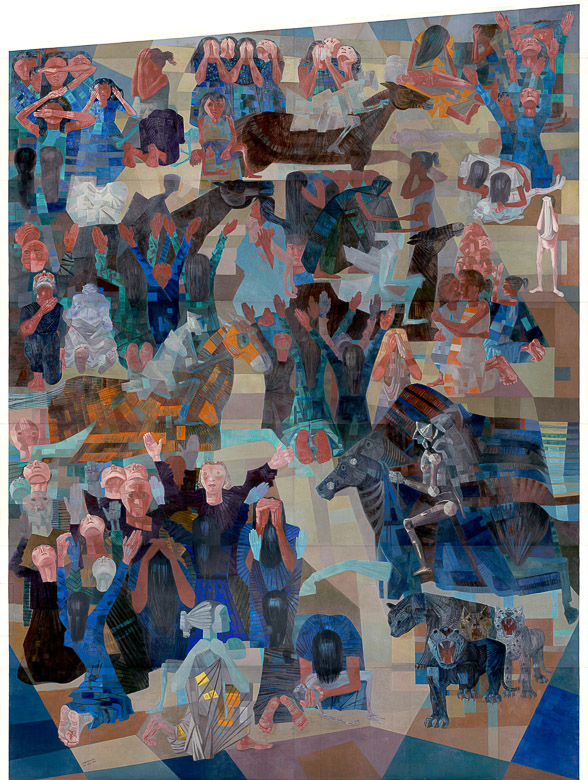
Candido Portinari (Brasil), Guerra (War), 1952-1956. Oil panel/plywood 1400 x 1058 cm.
War
The year 2025 marks 80 years since the most significant military victory over fascism, but this does not mean that the fascist ideology has disappeared. The War of Resistance against Japanese Aggression fought by China and the Great Patriotic War fought by the Red Army remain living testimonies that confronting fascism entails enormous sacrifices and that the military defeat it suffered in the 20th century is no guarantee that our peoples cannot again be threatened by extremist ideologies that combine capitalist predation with its violent ideological project. At the Tricontinental Institute (see Dossier No. 79), we have reflected on the advance of the neofascist project and its challenges for our region.
The “new Cold War” with which hyper-imperialism today threatens China, the impossibility so far of reaching a peace agreement in Ukraine, and the worsening of the genocide in Gaza demonstrate the limitations of multilateralism, which is increasingly threatened by Washington’s attempt to impose a supposed “rules-based order” that seeks to change the principles of the United Nations Charter for norms dictated and imposed for the convenience of the interests of a project that aims to monopolize the use of military force and technological development, fragment popular struggles, plunder the common goods of nature, and keep humanity on the brink of a nuclear war.
The principles born in the Global South, from spaces of unity and cooperation such as the Bandung Conference (see Dossier No. 87) or the First Conference of Solidarity of the Peoples of Africa, Asia, and Latin America (Tricontinental Conference of Havana), call on us to strongly defend, from the popular camp, a peace anchored on solid foundations of national sovereignty, sustainable development, and social justice. The encounters between the peoples of Asia, Latin America and the Caribbean, and Africa must be resumed with greater force to build a new international order where there is room for an unalterable peace.
The work of spaces like the Group of Friends in Defense of the United Nations Charter, faithful to the founding principles of the UN and opposed to the arbitrariness of unilateralism, reminds us that we must look at ourselves in the mirror of the painful history of the 20th century and gather from the fruits of the victory against fascism the elements that allow us to overcome a tragic re-edition of the Cold War.
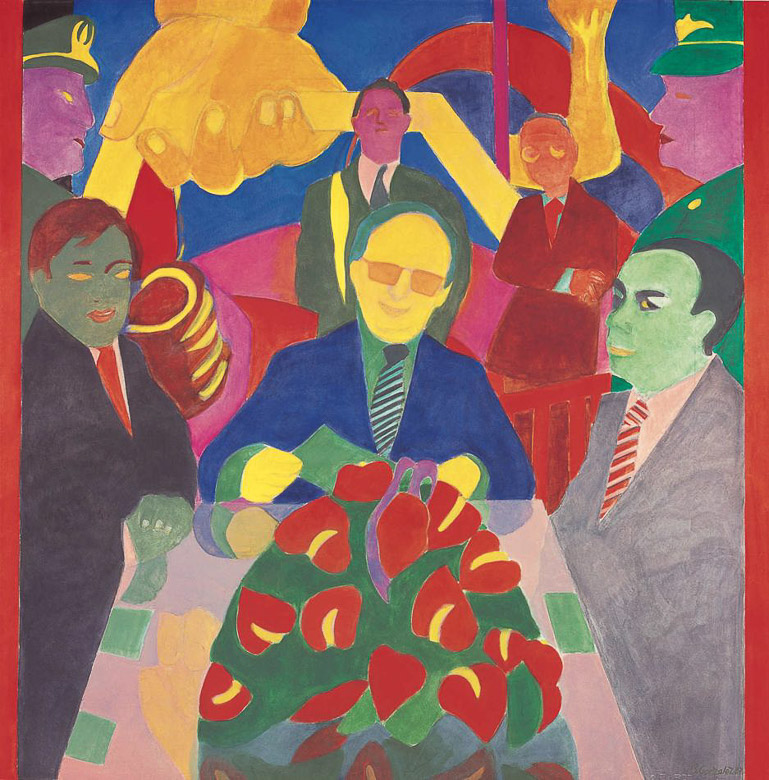
Beatriz González (Colombia), Señor presidente, qué honor estar con usted en este momento histórico (‘Mr President, What an Honour to Be with You in This Historic Moment’), 1987.
The other demons
On the same day that the People’s Summit for Peace and Against War was held in Caracas, the United States Treasury Department declared President Nicolás Maduro as the head of a supposed drug cartel known as the Cartel de los Soles, which was also declared a terrorist organization. The Department of Justice raised its reward for the capture of the Venezuelan president to US$ 50 million, and a New York Times article on August 8, 2025, states that President Donald Trump has signed a directive aimed at the Pentagon to use military force against certain Latin American drug cartels considered terrorists.
This is how the Bolivarian call for peace in West Asia was met with a new offensive in the misnamed War on Drugs, which since the Nixon administration has been progressively implemented as a justification for imperialist interventionism against Nuestra América. The War on Drugs, in practice, has been a military and legal instrument used to advance the ends of U.S. foreign policy and even to eliminate obstacles.
In July, the Venezuelan government had also announced that, together with the Colombian government, a Binational Economic Zone would be created for commercial integration, agricultural development, social development, and cooperation between the two countries, which would include sectors such as industry, gas, oil, electricity, tourism, and transportation. In terms of security, this advance strengthens cooperation between Colombia and Venezuela to combat drug trafficking without the need for U.S. mediation. Petro expressed on his social media: “I have received the support of Maduro and General Padrino to defeat the drug trafficking groups on the border of that country.” Likewise, Claudia Sheinbaum, the president of Mexico, a country that has been repeatedly threatened by Trump with military interventions against drug trafficking, dismissed the attempts to link President Maduro with Mexican drug trafficking: “if they have any evidence, let them present it, but we have no evidence related to those links.”
So far in 2025, Venezuela has seized more than 50,000 kilograms of drugs, and local authorities have indicated that seizures after the expulsion of the U.S. Drug Enforcement Administration (DEA) are now significantly greater. Political motivation, and not drug trafficking, once again seems to be the main impulse behind this escalation of persecution against the Venezuelan government.
Recently, along with the Observatorio Lawfare, we published the second notebook in the series Addicted to Imperialism, which seeks to show the role that the drug problem has played in U.S. foreign policy and the political, social, and economic impact of Plan Colombia. The peace that is sought to be imposed in this war is the peace of exploitation, oppression, the appropriation of natural resources, and displacement from territories. It is an apparent peace that will only end up reproducing the engines of war, exploitation, and death.
Peace is associated with every element of the material reproduction of life. War, consequently, is associated with every threat against it. It is no coincidence that the Pentagon is the main polluter of the planet. In a planet of environmental crisis, a climate catastrophe such as a flood or a prolonged drought also puts peace at risk. The peoples of Nuestra América and the entire Global South have the right to build the peace necessary to save the life of the planet. The way to exercise that right is through popular organization.
In the midst of the escalation, Venezuela held its seventh national election in a year, and on July 27, 37,000 communal projects were presented, driven by the country’s youth. In the protagonism of the youth and their organizational capacity lie the keys for new generations of the Global South to build a future that surpasses the logic of capitalism and reaffirms humanist values to transform society. It will not be through war, but through a peace that can be sustained in justice and solidarity, that we can guarantee the future.
In El despertar de la historia (The Awakening of History), the singer Alí Primera asked us the question and gave us the solution:
What is the struggle of men to achieve peace?
And what peace? If they want to leave the world as it is.
Help it, help it, so that humanity may be human.
Greetings to all,
Carlos Ron, Carmen Navas and Guillermo Barreto
https://thetricontinental.org/newslette ... er-demons/
*****
Leaked Audio Recordings and an Alleged Corruption Network: Milei’s Latest Nightmare
September 3, 2025
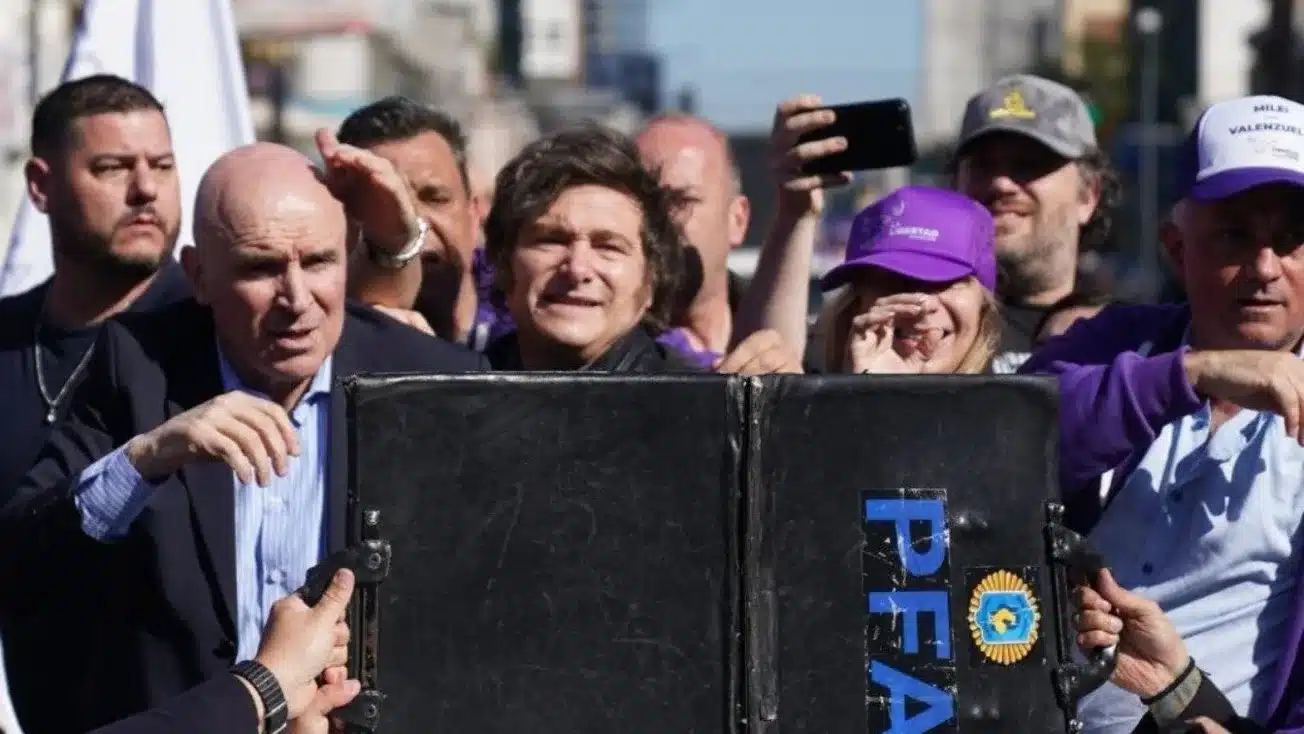
A suitcase is held in front of Argentine President Javier Milei as protesters throw bottles and rocks at the vehicle. Photo: Reddit.
The Argentine president is facing provincial elections at the most critical moment for his popularity.
Javier Milei’s far-right government is experiencing one of its most critical moments since he took office as president of Argentina in 2023. According to a poll by Torcuato di Tella University, the executive branch’s popularity and trust ratings have plummeted in recent weeks.
On August 27, the president and other senior officials, who were campaigning for the September 7 provincial elections, had to be evacuated from a public appearance after being insulted by several protesters.
Some even threw objects at the president, forcing the vehicle they were in to flee from the crowd. Milei accused Kirchnerism, a left and pro-sovereignty political trend in Argentina led by former presidents Néstor and Cristina de Kirchner, of being behind the attack.
The decline in popularity of the libertarian leader follows several leaked audio recordings. These recordings allegedly reveal a corruption network benefiting several government officials, including Karina Milei, secretary of the presidency and sister of the president.
An alleged corruption network: “Karina takes 3%”
On August 29, journalist Mauro Federico’s outlet Data Clave broadcast two alleged audio recordings of Karina Milei. In the first recording, according to the media outlet, Karina Milei states, “We can’t get into a fight with each other. We must be united.”
In the second audio recording, the Secretary of the Presidency apparently says: “So, not even here. In truth, they don’t have to be here 24 hours a day. I come in at 8 in the morning and leave at 11 at night from the Casa Rosada.”
Although the audio recordings do not reveal anything truly compromising, except for an apparent division within the executive branch, they do show a clear security breach within Javier Milei’s inner circle, as these are not the first recordings to be leaked.
These audio recordings are in addition to those that were leaked in previous days, in which Diego Spagnuolo, then director of the National Disability Agency, can be heard talking about an alleged corruption scheme involving laboratories and service providers linked to public health care for people with disabilities.
According to Spagnuolo, the kickbacks were paid through the Suizo Argentina drugstore, which pressured certain suppliers to apply surcharges and secure contracts in favor of the state.
In addition, Spagnuolo accuses Karina Milei and Eduardo Menem, a former senator, of benefiting from the scheme in the audio recordings. Menem allegedly took 1% of the profits, and “Karina takes 3%,” said Spagnulo.
Following the leak of the audio recordings, Spagnuolo was dismissed, but not before announcing that he had already informed the president of the corruption scheme. Days later, the lawyer for former president Cristina Fernández, Gregorio Dalbón, filed a complaint about the alleged corruption plot.
The government’s reaction: denial and prosecution
Despite his sister’s silence, President Javier Milei has categorically denied the accusations and blames the opposition for initiating them. “Everything [Spagnuolo] says is a lie; we are going to take him to court and prove that he lied … They are coming for the freedom of all Argentines,” said the president in response to the scandals plaguing his government.
For its part, the executive branch said that the dissemination of Karina’s audio recordings is historic, as recordings of conversations that took place in the Casa Rosada had never been released before: “If this is a real audio recording, it was obtained illegally inside the National Government House, creating an unprecedented event in national history.”
In addition, presidential spokesperson Manuel Adorni said he would file a complaint with the courts over what had happened: “The government has reported to the federal courts an illegal intelligence operation aimed at destabilizing the country in the midst of an election campaign. Private conversations between Karina Milei and other officials were recorded, manipulated, and disseminated to influence the executive branch. This was not a leak. It was an illegal, planned, and direct attack.”
Russia behind the leak? Argentine courts ban the dissemination of Milei’s audio recordings
For now, the government’s move to stop further dissemination of the audio recordings has worked. The Argentine courts have banned the continued dissemination of the audio recordings in which Karina Milei can be heard, on the grounds that it would be an attack on the “privacy and honor” of the official, as well as putting Argentina’s “institutional security” at risk.
In its complaint, the far-right government said that this was an “illegal intelligence operation” that sought to destabilize democracy. But what is most surprising is that, according to the government, those who leaked the audio recordings are “people linked to Russian intelligence services with influence in Venezuela.”
Several experts have criticized the court’s decision, considering it an attack on freedom of expression. According to them, the honor of the Secretary of Government has not been endangered, and that the decision is rather aimed at censoring new recordings. However, he states that a court order of this type cannot be issued before the content of the undisclosed audio recordings is known.
For now, the government is seeking to resolve the problem it finds itself in, which has paralyzed its control of the public agenda. Amid rumors of more audio recordings allegedly featuring government officials, Argentine public opinion is eagerly awaiting developments. Milei’s government will face a real test in the September 7 elections, from which it could emerge stronger or deeply wounded, even compromising its possible reelection.
(Peoples Dispatch)
https://orinocotribune.com/leaked-audio ... nightmare/


